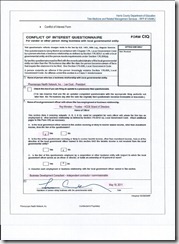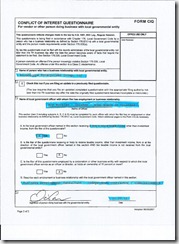![[CSCOPEcurtain%2520%25281%2529%255B5%255D.png]](http://lh4.ggpht.com/-YNZA1FvqOnU/UOXrT1LjuQI/AAAAAAAAA0s/xmqeuqkDyzw/s1600/CSCOPEcurtain%252520%2525281%252529%25255B5%25255D.png)
Colleen Vera
colleen@TexasTrashTalk.com
http://www.texastrashtalk.com/
(Updated: 3/29/13 Texas Attorney General, Greg Abbott has now promised a full investigation of TESCCC and CSCOPE.)
As a retired Texas pubic school teacher, the recent concerns being raised over CSCOPE curriculum sparked my interest.
I wanted to know more about the business side of CSCOPE, so I filed a Public Information Request for the meeting minutes of their governing board. Instead of finding answers, all I found were more questions.
#1 – If a State agency used tax dollars to develop a product, doesn’t the product belong to the People of Texas?
Texas Education Service Center Curriculum Collaborative (TESCCC)’s own attorney gives this CSCOPE background:
TESCCC was originally established as a collaborative of several of the Education Service Centers (ESC) in Texas with the stated purpose to provide high quality curriculum and instruction materials, resources, and professional development for Texas public school districts. Subsequently, TESCCC developed CSCOPE which is a comprehensive, user friendly, curriculum support system. As CSCOPE became widely used among Texas school districts, it was necessary for TESCCC to formally organize itself to better protect its intellectual property and serve its customers. Now, TESCCC is a non-profit corporation organized under the Texas Business Organization Code. TESCCC was incorporated in 2009 and was granted non-profit status under 501©(3) of the Internal Revenue Code …Today 816 of the approximately 1230 Texas public school Districts and charter school systems use the CSCOPE product. Although the Attorney General’s office determined in OR2012-04869 dated April 4, 2012 that TESCCC was subject to the Public Information Act, TESCCC operates in every other way as a private corporation.
Public funds paid for the development of CSCOPE. TESCCC is a committee of paid State employees. How can paid employees of a state agency simply transfer ownership of CSCOPE from the People of Texas to a private corporation? Were The People compensated at fair market value for CSCOPE or did TESCCC simply claim eminent domain?
Did the 19 ESC Executive Directors who make up the TESCCC have votes of approval from the 19 elected ESC boards that oversee them? Did TESCCC get written approval from the Commissioner of Education before transferring State property to a private corporation?
#2 – What is TESCC trying to hide?
In April of 2012, the Texas Attorney General ruled that CSCOPE’s governing board, TESCCC, is a “governmental body.” A quote from the ruling:
… upon, review we conclude that the collaborative is funded through public funds, and the collaborative is governed by governmental bodies, namely the member ESCs through its governing board…Accordingly, we conclude that the collaborative falls within the definition of a “governmental body” under section 552.003(1)(A)(xii) of the Government Code.
But TESCCC refused to release all their meeting minutes. Instead, they went back to the Attorney General for another ruling claiming :
…when read as a whole, the minutes TESCCC seeks to withhold offer insight into how the board operates …access into the inner-workings of the organization and how it makes decisions…
REALLY??? They paid a lawyer to write this???
Isn’t that the true purpose behind open meetings and open records? Giving the public insight into how governmental boards operate and how decisions are made?
In fact, Texas law specifically states:
§ 551.022. The minutes and tape recordings of an open meeting are public records and shall be available for
public inspection and copying on request to the governmental body’s chief administrative officer
or the officer’s designee.
I didn’t ask for anything from closed sessions, simply the minutes from meetings I could legally have taped myself. What is in those minutes that State employees are afraid the people who pay their salaries will find out? What are they going to so much trouble to hide?
#3. Have TESCCC meetings been legally posted?
Texas laws are very specific about the posting of public meetings.
Two that appear to apply to TESCCC are:
§ 551.041. A governmental body shall give written notice of the date, hour, place, and subject of each meeting held by the governmental body
§ 551.044. Governmental Body With Statewide Jurisdiction (a) The secretary of state must post notice on the Internet of a meeting of a state board,
commission, department, or officer having statewide jurisdiction for at least seven days before the day of the meeting. ..
Yet, a search of the Open Meeting Archive on the Texas SOS website shows no record of TESCCC meetings ever being posted.
The law goes on to read:
§ 551.141. An action taken by a governmental body in violation of this chapter is voidable.
§ 551.142. (a) An interested person, including a member of the news media, may bring an action by mandamus or injunction to stop, prevent, or reverse a violation or threatened violation of this chapter by
members of a governmental body.
If the TESCCC board meetings have not been legally posted with the SOS, who is responsible for voiding TESCCC’s actions and stepping in to oversee the millions of dollars in public funds they control? The Commissioner of Education? The State Comptroller? The SOS? The AG? The Legislature? Who is watching out for the People?
(After the Texas State Senate Education Committee held a public hearing on CSCOPE 1/31/13, TESCCC held its first publicly posted meeting on 2/18/13.)
(Texas Attorney General, Greg Abbott, has promised a full investigation into TESCCC and CSCOPE.)
#4. Should employees of the State of Texas be doing work for a private corporation while being paid by the taxpayers to work for the State?
In the letter TESCCC’s attorney sent to the AG to block release of their meeting minutes he states:
Although the Attorney General’s office determined…that TESCCC was subject to the Public Information Act, TESCCC operates in every other way as a private corporation…
Really? A private corporation and not an extension of Texas Educational Service Centers? Then…
why do job postings at ESC13 read,”Serve as representative of the Texas Education Service Center Curriculum Collaborative (TESCCC) and ESC Region XIII”?
why is the State Director of CSCOPE, who works for TESCCC, listed as “staff” at ESC 13?
why does his job description read: “Serve as a representative of the Center and TESCCC.” ?
why is his email address on a tax supported website and not a corporate site? wade.labay@esc13.txed.net
why does he have the same email and phone number as he did when he was presenting a Block Scheduling seminar for ESC13 in 2007?
why did the link to register for the TESCCC sponsored state conference in 2012 go the tax supported ESC13 website instead of a corporate site? http://ecampus.esc13.net
why does a reply for a request for public information sent to TESCCC get returned from:
Mason Moses Public Information Officer
Texas System of Education Service Centers
Office: 512-919-5349
Fax: 512-919-5232 ???
But more importantly, who is keeping track of the hours State ESC employees are spending developing a product owned by a private corporation?
Some excerpts from TESCCC minutes show that State ESC employees are doing TESCCC work on taxpayer time.
10-11-10 TESCCC Governing Board Meeting @ ESC 13
J. Vasquez (Ex Dir ESC19)commented that 2/3 of his staff have been tied down with CSCOPE work at this point in time…C.Bayuk commented that it is better for ESC staff to be part of the development process and not just have contracted personnel…she encouraged a model where each member ESC devotes staff to some degree throughout the development process
8/6/12 TESCCC Governing Board Meeting @ ESC 13
A. Poplin (Ex Dir ESC9) added that her own secretary has taken on a lot of CSCOPE work since there is no administrative support for W. Labay or the State Office in general.
Meeting minutes also show that the TESCCC board meetings coincide with the State CCRS meetings. It appears that ESC directors travel to Austin for the TESCCC meetings using travel allowed for CCRS. Does that mean pubic funds are paying salaries and travel to benefit a private corporation? The two meetings are so intertwined that…
on 2/14/2012 the TESCCC minutes read: “J. Bass stated that the date of the next CCRS meeting will dictate the date of the next Governing Board meeting.”
on 8/8/11 the TRSCCC minutes read: “Adjourned at 11:37am and reconvened at 3:58pm after CCRS meeting.”
on 5/7/12 the TESCCC minutes read: “Approval of the ESC Public Information Specialist position – postpone that for CCRS”
What private corporation has the approval of a State Agency Public Information Officer position on its agenda???
Minutes also show that ESC13 is listed as the “fiscal agent” for TESCCC and the TESCCC State Staff is housed at ESC13. Does that mean employees of a private corporation are able to earn state employee benefits like state sick leave credits and/or state retirement credits because they are paid via ESC13?
Does TESCCC provide an extra stipend to its board members or do the taxpayers pick up the entire tab for their extra work on the TESCCC Board, its committees and CSCOPE?
(Texas Attorney General, Greg Abbott, has promised a full investigation into TESCCC and CSCOPE.)
#5 – Should State agencies use tax dollars to operate businesses to compete with private enterprise?
Should 19 State employees be allowed to operate a private corporation inside a Texas State agency and block the taxpayers from information on what they are doing? Is it really saving taxpayers money when the taxpayers are the investors, the debt holders and the clients?
TESCCC meeting minutes state:
…approximately $4.1 million to develop CSCOPE from the beginning…based from the work done for the FAST Report of 2010. However, the costs would have increased since new components have been added and that original estimate was completed in 2010.
Plus it appears that each participating ESC pays TESCCC:
“one flat rate amount” to join TESCCC and earn the right to sell CSCOPE,
another annual “flat rate amount”,
12-14% of their CSCOPE revenue each year based on $7.oo per ADA
plus 12% recapture amount from NER back to TESCCC based on invoiced costs (minutes 3/31/11 +5/9/11)
Does this mean that:
A State agency used State funds to develop CSCOPE…
State employees gave CSCOPE to a private corporation….
State taxpayers pay the salaries of the board who runs it and the directors who oversee it….
State taxpayers pay yearly fees for the right to sell it to local taxpayers…
Local taxpayers pay for their school districts to use it…
And a private corporation gets the “profits”…????
What a racket…and just think of all the State employee expenses and benefits the taxpayers are covering along the way.
(Texas Attorney General, Greg Abbott, has promised a full investigation into TESCCC and CSCOPE.)
Why does it have to be so complicated? Why can’t the school districts just buy CSCOPE from an ESC like other products?
Could the answer be in the spirit of Texas Education Code Sec 8.056 which places limits on the ESCs charging school districts more than their administrative costs as well as restrictions on ESCs retaining profits in certain situations?
It appears from the TESCCC minutes that in 2011,
the school districts paid their local ESC for CSCOPE
the ESC paid NER (National Education Resources, Inc)
NER sent TESCCC back 12%
With monies moving around this way, the ESCs don’t technically charge above their administrative costs and don’t technically keep any “profits.” It is technically a “private corporation” that keeps the “profits.”
Just how much “profit” are we talking about?
TESCCC incorporated in 2009 and claims their fund balance on 8/8/11 was $1.8 million. That means TESCCC nets an average of $900,000 per year. Not a bad “profit” for a “non-profit.”
But, beyond the money aspect is the question of “competitive advantage.”
TESCCC argues that they should not have to release meeting minutes to the taxpayers for a number of reasons, two being…
TECSSS could lose its competitive advantage over its for-profit competitors and
TESCCC will suffer specific harm if its RFP process, how it maintains its vendor relationships, and how strategic decisions are made for the development of CSCOPE are known
Just what do the TESCCC meeting minutes tell us about their management?……
PART II
Part I raised numerous questions about the business side of CSCOPE but now it is time to dive deeper.
Let’s start with the question: WHO OWNS CSCOPE?
To help find the answer, you need to know a little about the education system in Texas. So the teacher in me is going to give a quick review with the help of the flowchart I made below:

In Texas, we elect the Legislature that makes the laws governing public education, as well as collects and distributes the public funds (our money) needed to run it.
The people elect the State Board of Education (SBOE) and the Governor. Two duties of the SBOE are setting Texascurriculum standards and the review of educationalmaterials purchased with State funds for Texas public schools.
The Governor appoints the Commissioner of Education who oversees the Texas Education Agency (TEA) and 20Educational Service Centers (ESC) throughout the State. He sets the process for each ESC to elect a Board of Directors, controls the distribution of State funds to each ESC, and is responsible for their yearly evaluation.
The Board of Directors of each ESC hires an Executive Director who serves as the CEO and may employ other personnel as needed.
In 2006, CSCOPE was a new curriculum productdeveloped by the ESCs to sell to school districts.
But in 2009, 19 ESC Executive Directors transferred CSCOPE to a private non-profit corporationcontrolled by them called the Texas Education Service Centers Curriculum Collaborative (TESCCC.) TESCCC charges each ESC a membership fee ($200,000 – $300,000)which gives ESCs the right to sell CSCOPE to their local school districts. ESC 4 chose not to participate originally, but Pam Wells, Executive Director of ESC 4 in Houston, has now joined.
When the TESCCC sells CSCOPE to a school district, they require that all school personnel sign non-disclosure agreements to make sure no one else, including parents, is able to view CSCOPE materials. (TESCCC is now promising the public will be able to view CSCOPE by April 2013.)
The CSCOPE product is designed to REPLACE textbooks in the classroom even though the CSCOPE curriculum has never been reviewed by the SBOE. Instead, TESCCC bypasses the SBOE process and sells CSCOPE directly to school districts. This is possible because in the last session, the Texas Legislature changed the law and now allows school districts to use State funds to purchase educational materials that have NOT been reviewed and approved via the SBOE process.
Even though TESCCC’s Governing Board is made up of State employees who meet on State property while beingpaid with State funds, the TESCCC refuses to allow the public to attend its Board meetings, refuses to release all the minutes of its Board meetings and the Texas Attorney General ruled that CSCOPE materials are exempt from disclosure because release could harm CSCOPE’s “ competitiveness in the marketplace.”
(After the Texas Senate Education Committee held a public hearing on CSCOPE 1/31/13, TESCCC held its first publicly posted meeting on Feb. 18, 2013.)
So that means public money produced CSCOPE, public money is used to pay a fee for the right to sell it, and public money is used to buy it. But, the public has NO right toknow what is in it.
Is there a name for a scheme like that? Is it considered self-dealing? Where else in Texas are the taxpayers being scammed????
(Texas Attorney General, Greg Abbott, has now promised a full investigation into TESCCC and CSCOPE.)
All this raises many questions about CSCOPE. Questions like:
- Who owns CSCOPE?
- Why the need for secrecy?
- Why bypass the elected SBOE?
- Who allowed a public product to be transferred to a private corporation?
- Should the government use public funds to operate private corporations that restrict public disclosure?
- Should state employees have control over millions of dollars of public funds without any oversight from elected officials?….and so on…..
While I wait for the Texas Attorney General to rule if TESCCC must release all the minutes from its Governing Board Meetings, more questions arise from the minutes I was able to obtain:
- What is the true mission of TESCCC and CSCOPE?
- How did CSCOPE sell so fast?
- How dysfunctional is the TRSCCC management process?
What is the true mission of TESCCC and CSCOPE?
TEC Sec 8.002 says the purpose of ESC’s is to assist school districts in improving student performance and operating more efficiently. Sec. 8.053 allows ESCs to offer any service requested and purchased by a school district.
So, if the ESCs have a product, and school districts request it, the ESC can sell it. There is no need to set up private, secretive corporations, unless…..
You read TEC Sec. 8.010: Sunset Provision
Regional education service centers are subject to Chapter 325, Government Code (Texas Sunset Act). Unless continued in existence as provided by that chapter, the centers are abolished and this chapter expires September 1,2015. Added by Acts 2011, 82nd Leg., R.S., Ch. 1232, Sec. 2.01, eff. June 17, 2011.
You see, in the “old days”, before DVDs and the internet, ESCs played a role in many classrooms. For example, because it was too expensive for every school to purchase 8mm films, ESCs offered educational films teachers could simply check out. In the days before Xerox when teachers still used mimeograph machines (the copies with purple ink), ESCs offered workrooms for teachers to make professional looking posters, lettering, and other supplies for their classrooms. They also had educational reference libraries and offered a variety of teacher training workshops. There were 20 ESCs spread across the State to make it easier for all schools to have access to their services.
But the world has changed. Most of the services provided by ESCs in the “old days” aren’t needed anymore. Private Educational Service and Consulting companies have sprung up everywhere and are now competing with the ESCs for school district business. Technology changes daily and the ESCs battle against private companies to stay relevant.
The ESC Executive Directors know they have a very short window of opportunity to come up with something they can use to claim they are still relevant, or they all have to look for new jobs on 9/1/15. (The date the Sunset Provision could shut down all ESCs.)
What better way to claim they are not only relevant, but NECESSARY, if the majority of school districts in Texas rely on their product for curriculum, lesson plans, tests, and all teaching materials? ESCs could claim that if they closed, there would be chaos in schools across Texas!!! Of course, that is NOT TRUE, but if they scream it loud enough, some people might believe them.
They also know that the citizens of Texas are now awake, politically active, and sick and tired of their hard earned money going to unnecessary government agencies. So, there is an excellent chance that 20 ESCs will no longer be open all around the state come 2016.
So the TESCCC Board members could simply make money off of CSCOPE via TESCCC instead of being employed by an ESC. They could follow in the footsteps of past Board members from the Harris County Department of Education (HCDE) who have found clever ways of making money from service on their Board.
Take for example the Mayor of Katy, Don Elder. When he left the HCDE Board, he was hired as a “consultant” for one of the non-profit corporations set up by HCDE and has been paid around $100,000 every year.
Another HCDE board member, Roy Morales, uses a different technique. He is a “Business Development Consultant – commissionable /independent contactor “ for a company that has multiple contracts with HCDE and HCDE’s non-profit corporations. So after he leaves the Board in January, he can still earn income from the work he did to expand the company’s business with HCDE and its non-profit corporations.
So, what is the true mission of TESCCC and CSCOPE? To assist school districts or the Board members? To ensure the quality of education for Texas students or the quality of life of Board members?
All I know for sure is that HCDE uses the same tacticsTESCCC is using to attempt to block the release of public records – arguing release would harm their business interests. But, without release of business records, taxpayers would have never known that an HCDE Board member could earn commissions from district contracts.
Could this answer the question: Why the need for secrecy at TESCCC?
How did CSCOPE sell so fast?
It took Smart Phones 2.5 years to capture 50% of the cell phone market and people don’t need school board approval to buy one.
In sales, the average Conversion Rates is about 29%. That means 1 actual closed sale for every 3 product inquires.
To establish “monopoly power” the US Court of Appeals requires a minimum market share of 70-80%…… and…… Sec. 26 the Bill Of Rights in the Texas Constitution states that monopolies “shall never be allowed” in Texas.
Yet, in only 2.5 years, TESCCC has captured 70% of the Texas School District curriculum market – the cusp of “monopoly” status – with CSCOPE – a product that was still in thedevelopmental stage and had never been reviewed or tested…… and……TESCCC only marketed their product at two conferences – TASA/TASB and TASA Midwinter.
That is either a sales record that belongs in the Guinness Book or something fishy is going on with CSCOPE.
Why did 70% of Texas Superintendents convince their School Boards to approve funds for a curriculum product that had never even been tested or reviewed? Did they not know what they were buying? Did they assume that if it was sold by ESCs, it had the approval of the SBOE?
Or, was it sold as a product that could help to guarantee that ESCs in Texas would stay “relevant’ – and thus – stay funded?
Why would they care? Could it simply be the oldest reason in the book….$ MONEY $?
There is a very limited market for top tiered school administrators in Texas and they watch out for each other like a fraternity. There are limited places for them to earn big bucks after leaving ISDs. If ESCs close, a gravy train of State funds dries up for them.
As one State Legislator said to me, “Everyone knows ESCs are where old school administrators go to retire.”
How dysfunctional is the TESCCC management process?
The minutes of the TESCCC Board meetings I was able to obtain raise even more questions about what is going on inside TESCCC and who has oversight over the public funds they control?
One example of very questionable business practices is TESCCC’s dealings with a company called National Education Resources (NER.) This is what I can put together from the partial minutes released.
It appears that for the first two years, all funds from CSCOPE flowed through NER at some time. Districts paid ESCs, ESCs paid NER, then NER sent a percentage back to TESCCC.
Millions of dollars in public funds changing hands..
……. yet….
- Months without a formal contract?
(8/10/10) …emphasis on need to have a formal contract with NER…(10/11/10)… The (NER) contract under construction now is to simply capture the current agreement between the TESCCC and NER…(11/8/10)…J. Bass mentioned that the draft NER contract was just finalized and reviewed by legal… (1/10/11)… G. Gibson updated the Board on the NER contract development process.
- Contracts that “guess” performance?
(11/8/10) … Greg Gibson emphasized that this is an agreement to represent what is currently in place with NER and the TESCCC. It is an attempt , with some “guessing” to capture what is currently in place with NER in terms of performance, etc…
- No check of the company’s financials?
(11/8/10) … D.Lovett asked if there were more specifics on the financial health and state of NER’s operation. G. Gibson said that no work was done on the financial state of NER outside of this agreement..
(1/10/11)… G. Gibson updated the Board on the NER contract development process. …the motion also included the elimination of the requirement to have a SAS 70 audit. Instead, TESCCC will retain the right to conduct a technology audit of NER facilities at any time. The Board unanimously approved.
- Nothing in place to review billing?
(2/13/12)…A.Polin explained that some ESCs have noticed discrepancies in invoicing from NER. A Poplin asked that the Governing Board members review and confirm that they have been correctly invoiced.
- No record of data collection?
(4/16/12)… A.Poplin explained that it is necessary tosurvey districts to find out what locally customized data is in the NER Developer. That knowledge is necessary to validate that NER has transferred all of the data to the State (CSCOPE) Office.
**Note: July 2012 appears to be the final month of services from NER.
Did no one at TESCCC – or the lawyers or consultants they hired – even do a simple Google search to find that NER’s address is a home in NY and notice that there is no company website ?

Concerns over the management practices at TESCCC don’t stop with NER.
- TESCCC employees amended the budget and spent public funds without Board approval.
(9/13/10)… W. Labay discussed the 09-10 budget, providing summary and detailed documents. SOME MEMBERS QUESTIONED CERTAIN BUDGET AMENDMENTS AND EXPENDITURES THAT WERE MADE WITHOUT BOARD APPROVAL.When it was revealed that the funds in question needed to be expended during a month when there was no Board meeting, the members agreed that a procedure must be written that delineates the actions that need to be taken under such circumstances…
- TESCCC appears more concerned with making money than providing school districts with services:
(2/14/11)… The science lessons will be ready on schedule. We are releasing only the first 12 weeks because there is concern that districts will download a year of lessons and then end or not renew their CSCOPE contracts…
(3/31/11)… W. Labay also included that many ESCs are hosting event/conferences in the summer … somewhatpose a competitive risk to the (State CSCOPE) conference
(8/8/11)… C. Bayuk – Expresses that Leadership Team is extremely concerned about these vendors … because many are in direct competition to CSCOPE.
(2/13/12)… R.Beard explained that his staff asked if CSCOPE could be sold differently from the central practice of district-wide adoption.The Governing Board discussed that this would depart from original, systemic intent; …that some districts might downsize given the option.
(9/13/10)… Gibson summarized the negotiations with the three textbook publishers for contracts to align with CSCOPE. …although we were hoping to get a guaranteed amount in advance from these companies, they are not interested in paying a significant amount for nonexclusive arrangements with us ($50,000)…some in attendance wanted to continue with the process since their districts had asked for the textbook alignments. Others were concerned about the amount of resources that would have to be invested to review and approve each company’s alignment; currently we don’t know exactly how much time, effort, and manpower the review would take…SEVERAL ATTENDEES EXPRESSED CONCERN ABOUT PROVIDING WHAT COULD BE SUPERFICIAL TEXTBOOK ALLIGNMENTS TO CSCOPE IF THE MISSION OF CSCOPE IS TO CHANGE INSTRUCTION IN THE CLASSROOM…Board unanimously approved to delay negotiations… and revisit the issue at the January meeting.
- Lack of review of curriculum materials
(2/13/12)… T. Smith stated the issue of an external review of CSCOPE is becoming more prominent in information requests. The Governing Board may want to consider the option of hiring an outside group to review CSCOPE components…The question was asked if we had any idea who might perform the external review…W.Labay stated that we could use individuals and companies who perform textbook reviews as well as soliciting statewide input.
(3/5/12)…T.Smith explained that the recommendation for an external review …an estimated cost is $75,000 per content area….A.Poplin clarified that the total cost is not included in the budget W.Labay prepared for 212-13….The Governing Board discussed the option of only reviewing one content area or one component across all content areas to begin with.
(4/16/12)… T.Smith stated that the CSCOPE content review starts with Science only
So, who is ultimately responsible for this mess?
If you go back to the flowchart, I think you will find that we are.

We elected the Legislature who funds the ESCs and theGovernor who appointed the Commissioners of Education.
If we want it clean up, we need to let them know that we expectan immediate investigation of TESCCC and CSCOPE with all findings made public.
(Attorney General, Greg Abbott, has now promised a full investigation into TESCCC and CSCOPE.)
And, we all need to start attending our local ESC Board meetings to make sure our money is being handled properly. We can no longer assume someone else is keeping watch. We have to step up and do the job ourselves.
Your local ESC can be found @http://www.tea.state.tx.us/index2.aspx?id=2147503292.
Contact information for your Texas State Senator and Representative @ http://www.fyi.legis.state.tx.us/
Contact information for Governor Rick Perry @http://governor.state.tx.us/contact/
Contact information for Michael Williams, Commissioner of Education @ commissioner@tea.state.tx.us
512-463-8985


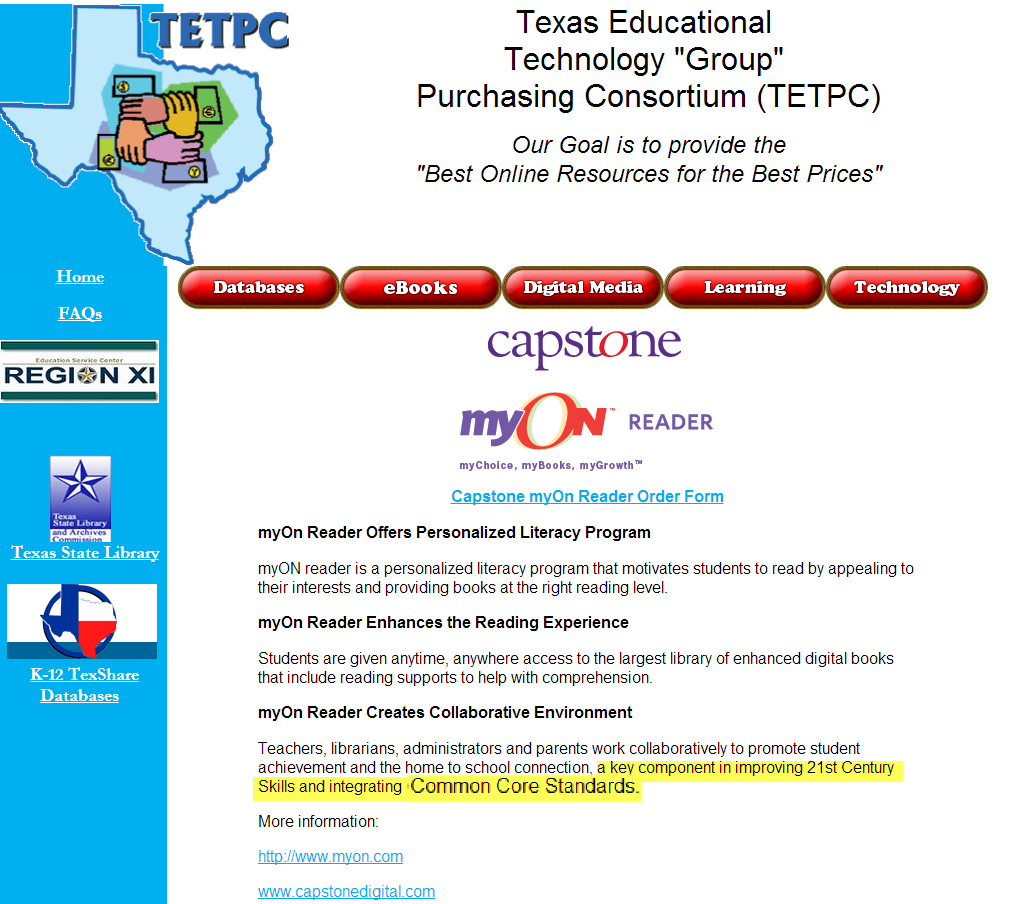
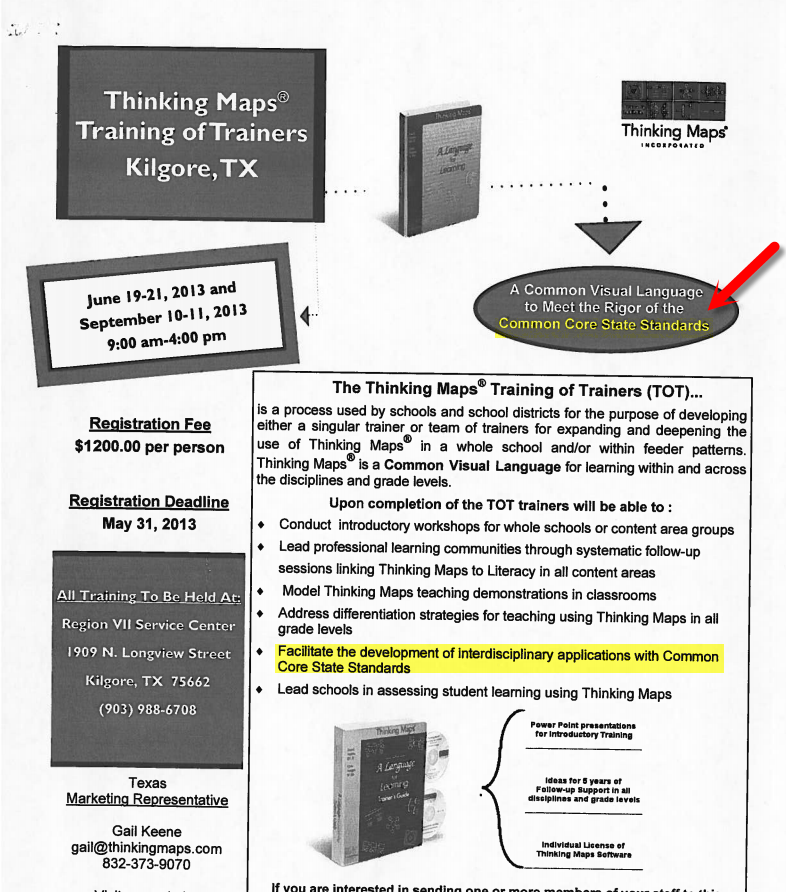
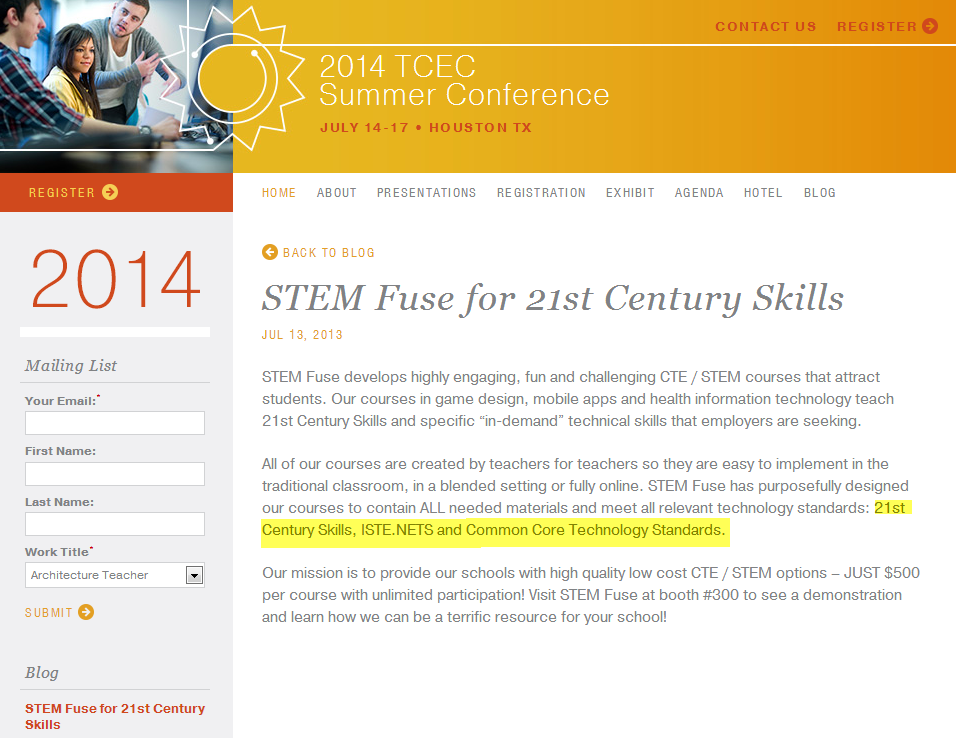

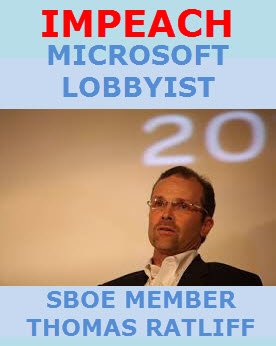
![[CSCOPEcurtain%2520%25281%2529%255B5%255D.png]](http://lh4.ggpht.com/-YNZA1FvqOnU/UOXrT1LjuQI/AAAAAAAAA0s/xmqeuqkDyzw/s1600/CSCOPEcurtain%252520%2525281%252529%25255B5%25255D.png)

